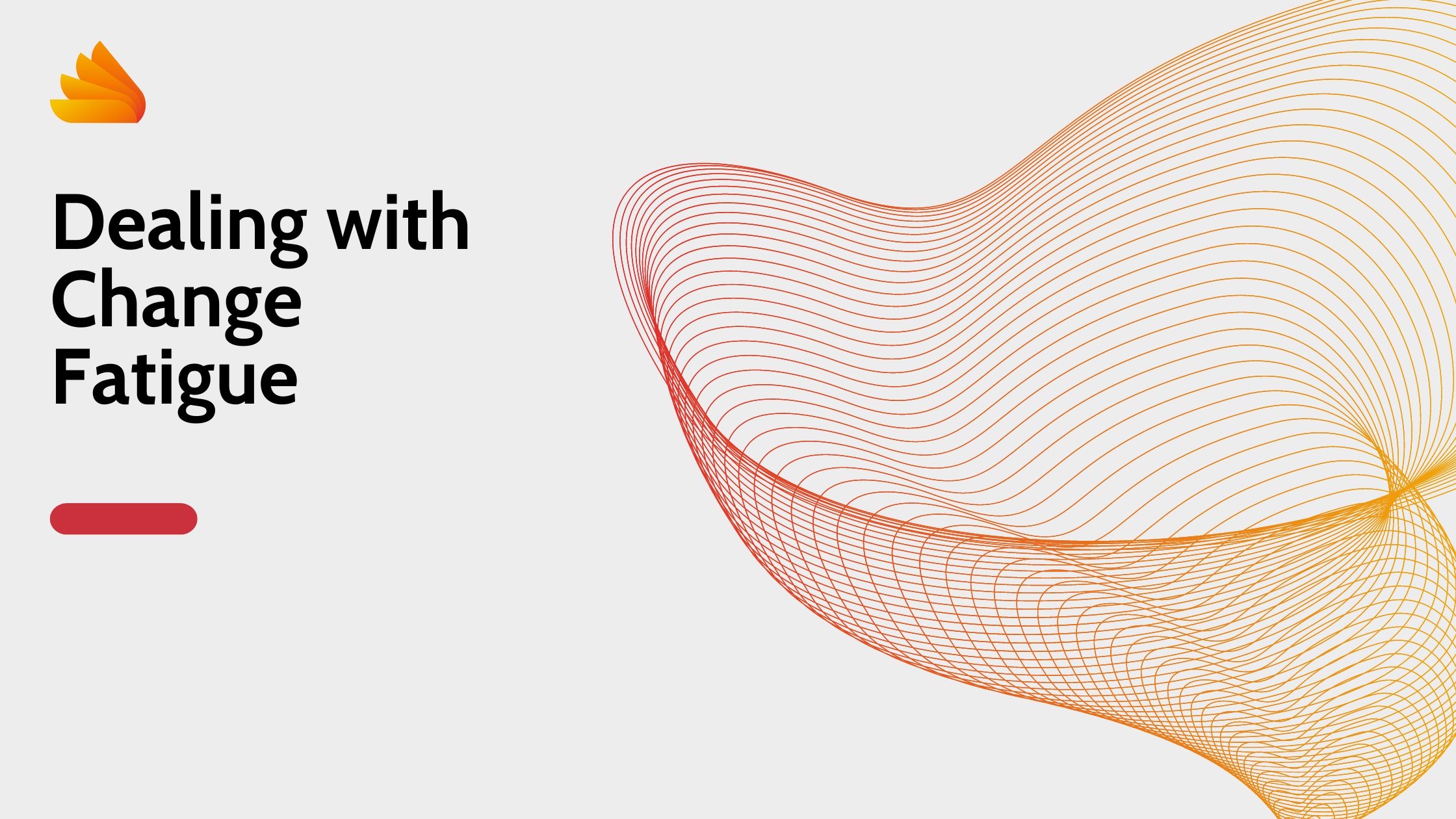We’ve all heard that death and taxes are the only predictable things in life, but we know that change should be part of that expression, too.
And boy, have we seen change over the past few years. We were turned upside down in March 2020, and I’m not sure we are right-side up again! And even if it isn’t the pandemic, the speed at which our jobs are changing is faster than ever (and that is saying a lot!).
I have had many changes in my personal life, too, with the addition of grandchildren (more on the way), we moved, and the death of all our parents. I know I’m not alone in having major upheaval.
But change isn’t always bad. Change can catalyze growth and progress (think promotion, buying a house, or starting a new job). We know that change is sometimes a good thing. But too much change in a short amount of time can be harmful.
However, change fatigue is real. Most people prefer routine, structure, and predictability. When that changes, we get stress, uncertainty, and burnout.
Change Fatigue is a general sense of apathy or passive resignation towards organizational changes by individuals or teams, said to arise when too much change occurs or when a significant change follows immediately on an earlier change. (Wikipedia)
According to a study by Gartner (November 2022), 57% of employees experiencing above-average change fatigue intend to seek a new job. Too much change is bad for you and bad for your company. But looking for a new job isn’t necessarily going to save you from change fatigue either!
Here are some tips to help you manage change fatigue so that you don’t suffer physically, mentally, emotionally, or financially (by finding a new job):
- Read and ask questions
The pandemic was an example of significant change, very quickly, followed by even more major change. It took a lot of work to keep up with the new restrictions, rules, and policies at work.
Since then, we are still seeing a constant flow of change with technology, responsibility, and staffing changes. The best thing you can do is read all communication that comes your way (even when it seems overwhelming). If you aren’t getting any communication, ask questions of anyone and everyone who will answer.
We know that companies are supposed to be open and transparent about changes, why the changes are happening, and what to expect. However, we also know that it seldom happens at the speed we want it to happen. Being kept in the dark causes us to resist and feel stress and anxiety. We need time and information to process the new changes, and advance communication allows that.
Have someone in the organization (your boss, mentor, or friend) who can listen to your questions, provide some answers, and be willing to help you find the other answers they don’t know. If you have questions about what is happening, you can be sure someone else does, too.
- Prioritize Your Health
Be open and honest about how you are feeling with so much change. Sweeping it under the carpet just builds and eventually, you will trip and fall over this invisible bump.
Healthy living, sleeping, eating, and balance are critically important to managing all that is coming your way and mitigating change fatigue.
- Say Yes to ALL Training
Don’t assume you know what the new software does. Don’t assume you can figure out the changes just because you don’t want to waste precious time in a workshop.
Naturally, I’m pro training of any sort, but even I will complain that I don’t have time to attend Training on new things. I just got myself a new Apple watch. I’m pretty excited about the possibilities, but I had it for 24 hours before jumping in to learn how to use it properly. I could have figured it out slowly by asking friends or plugging away with my knowledge, but instead, I spent three hours on YouTube figuring out everything I needed to do. I was excited about the watch, but it was still a change that I needed to learn.
- Don’t fear change
I’m pretty excited about some of the changes coming my way, even if they cause me a little anxiety. However, I also like structure, routine, and control.
Too many people say they hate change. Stop telling yourself that. Tell yourself that you can adapt to change when you feel in control. Mindset does matter, too!
Change fatigue can have negative effects by creating a sense of apathy, decreased engagement, and high employee turnover. However, by taking charge of the change coming your way, you can create a more resilient and adaptable you!










